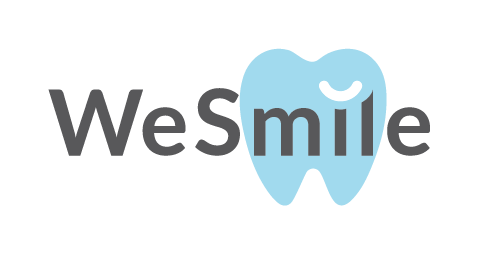How To Fix Buck Teeth
If you’re self-conscious about your buck teeth, find out which dental procedure is best to transform your smile.
If you’re self-conscious about your buck teeth, you’re not alone. Many people are born with this dental problem, and it is most commonly corrected by wearing braces for a period of time. In most cases, the braces will slowly move the teeth into the correct position over the course of a year or two. If you have buck teeth and would like to have them corrected, see your dentist for more information about the options you can take to fix your buck teeth.
See how braces can help, or explore these non-braces options!
What are buck teeth and what causes them
Buck teeth are when your top front teeth protrude out further than they should. This can happen if your bottom jaw is smaller than your top jaw, if your top teeth are too big, or if your teeth are misaligned. If you have buck teeth, it’s likely that you’ll also have an overbite, which is when your top teeth overlap your bottom teeth.
While buck teeth are mostly a cosmetic dental issue, they can also cause problems with your oral health. If you have buck teeth, it’s difficult to brush and floss properly, which can lead to tooth decay and gum disease. In some cases, people with buck teeth may also experience pain in their jaw and teeth.
Can braces fix buck teeth?
Dental braces are the most common treatment for buck teeth. Braces work by slowly moving your teeth into the correct position over a period of time. This process can take anywhere from a year to two years, depending on the severity of your dental issue. In most cases, dental braces will need to be worn for 18 to 24 months.
If you’re considering dental braces to fix your buck teeth, it’s important to keep in mind that they require regular maintenance and care. You’ll need to brush and floss your teeth regularly, and you’ll need to see your dentist for regular checkups and adjustments.
Benefits Of Dental Braces
Braces can be uncomfortable, and they may cause irritation to your gums and lips. in some cases, people may also experience headaches or jaw pain while wearing braces. but despite these drawbacks, dental braces offer a number of benefits:
- Dental braces is one of the most effective and efficient methods to correct dental problems such as buck teeth, gapped teeth, and crooked teeth.
- Dental braces can make your teeth look straighter and more uniform. this can give you a more confident smile and improve your self-esteem.
- Beyond an aesthetic fix, dental braces can help improve your oral health by preventing tooth decay and gum disease.
- Dental braces are a cost-effective way to improve your smile. many insurance plans will cover the cost of dental braces.
At WeSmile Dental, we offer a range of braces, from traditional metal braces to ceramic braces.
4 Types of Dental Braces:
Conventional metal braces
These “train tracks” are the most common kind of braces. Tiny metal brackets are attached to the front of each tooth using dental cement. An arch wire made of stainless steel, copper nickel titanium or nickel titanium is threaded through the slot of each bracket.
The dentist can tighten this to apply the correct pressure to each tooth in order to gradually adjust it into its desired position. Elastic bands or ligatures hold the arch wires in place and also apply pressure. You can choose the colour of the ligatures to add personality to your braces.
Lingual braces
Also known as ‘invisible’ braces, these braces have the orthodontic brackets installed along the inside of teeth instead of the outside of the teeth, as with conventional braces.
These are generally more expensive and more uncomfortable than regular braces and are not suitable for everyone.
Ceramic braces
Similar to metal braces, ceramic braces use a
tooth-coloured material to hold the archwire, which makes the braces less noticeable.
Self-ligating braces
These braces look almost identical to regular braces but in place of elastics or ligatures, the archwires are held in place by means of “sliding doors”.
How much do braces cost?
Braces can feel expensive but the cost covers the entire treatment period of
12 to 18 months. As with all dental treatments, braces are customised to meet the patient’s needs. You can expect your braces to cost somewhere in the ranges shown below:
– Metal Braces: $3,500 – $6,500+
– Ceramic Braces: $5,000 -$6,500+
– Self Ligating Braces: $5,800 – $7,300+
– Lingual Braces: $5,000 – $13,000+
For more information about our prices as well as other services, drop us a call at 6456 0406 or Whatsapp us at 8022 9433.
Dental Subsidies Available
CHAS & MEDISAVE ACCREDITED CLINICS

Pioneer Generation

Merdeka Generation

Medisave

CHAS
Common FAQs
Braces move your teeth by applying constant pressure to them for about 12 to 18 months. Afterwards, these changes need to be maintained by regular use of a retainer.
Getting braces starts with an oral examination, scans and X-ray. A dentist will glue a bracket onto each tooth, insert the arch wire and secure it. It typically takes 1-2 hours to fit braces; you will have a follow-up appointment every 4-8 weeks.
You should never feel any unbearable pain while undergoing braces treatment. However, the tightness may feel strange and the wires can be uncomfortable especially just after braces have been fitted for the first time.
If the discomfort from your braces cannot be managed with over the counter painkillers, contact your dentist.
Braces move teeth. As your bite changes, so the shape of the soft tissue which surrounds it – your cheeks and lips – may adjust to conform to the new structure.
However, braces cannot change the underlying shape of your jaw, your cheekbones or chin position.
After being fitted with braces you should avoid sticky, crunchy or hard foods which could cause the wires to separate from the brackets. Sugary foods and drinks should also be limited because wearing braces makes it harder to clean your teeth properly – increasing the risk of plaque and tooth decay.
How to fix buck teeth without braces?
If you don’t want to wear braces, there are a few other options that can be used to fix buck teeth. These include dental veneers, dental bonding, crowns and Invisalign.
Can Veneers Fix Buck Teeth?
If your buck teeth are not severe, your dentist may suggest veneers. Veneers are thin pieces of porcelain that are bonded to the front of your teeth. They can cover up dental flaws like cracks, chips, and stains. Veneers can also be used to correct dental problems like gapped teeth, misshapen teeth, and teeth that are too small or too large.
If you’re considering veneers to fix your buck teeth, it’s important to keep in mind that they are a cosmetic dental procedure. This means that they will not correct any underlying dental problems, like misaligned teeth. Veneers also require regular maintenance, and they may need to be replaced every few years.
Can Dental Bonding Fix Buck Teeth?
Another dental procedure that can be used to fix buck teeth is dental bonding. Bonding is when your dentist uses a tooth-colored resin to bond your teeth together. This can help to close gaps between teeth, and it can also make your teeth look longer. Bonding can also be used to change the shape of your teeth and to cover up dental flaws.
Like veneers, dental bonding is a cosmetic dental procedure. This means that it will not correct any underlying dental problems, like misaligned teeth. Bonding also requires regular maintenance, and it may need to be replaced every few years.
Can Dental Crowns Fix Buck Teeth?
Crowns are another dental procedure that can be used to fix buck teeth. Crowns are dental caps that are placed over your natural teeth. They can be made from a variety of materials, including ceramic, porcelain, metal, or resin.
Crowns can be used to correct dental problems like misshapen teeth, gapped teeth, and teeth that are too small or too large. They can also be used to cover up dental flaws like cracks, chips, and stains. Crowns can also be used to protect your teeth from further damage.
If you’re considering veneers to fix your buck teeth, it’s important to keep in mind that they are a cosmetic dental procedure. This means that they will not correct any underlying dental problems, like misaligned teeth. Veneers also require regular maintenance, and they may need to be replaced every few years.
Can Invisalign Fix Buck Teeth?
Invisalign is a popular orthodontic treatment that can be used to straighten teeth. It uses clear, removable aligners to gradually move your teeth into the correct position. Invisalign is a great option for people who want to straighten their teeth without traditional metal braces.
If you have buck teeth, Invisalign can be an effective treatment to correct them. Invisalign can also be used to treat other dental problems, like an overbite, underbite, and gaps between teeth.
If you’re considering Invisalign to fix your buck teeth, it’s important to keep in mind that the treatment can take several months to a year.
What’s the best for your buck teeth?
If you have buck teeth and would like to have them corrected, see your dentist for more information about the best treatment for your condition.
Buck teeth are a dental problem that is most commonly corrected by wearing braces for a period of time. In most cases, the braces will slowly move the teeth into the correct position over the course of a year or two. Dental braces are not just an aesthetic fix; they can also help improve your oral health by preventing tooth decay and gum disease.
If you don’t want to wear braces, there are other options that can be used to fix buck teeth, including dental veneers, dental bonding, crowns, and Invisalign. Whatever it is, our experienced dentists are sure to find the best method for you.
Schedule an appointment today to find out more!
Our Locations
Ang Mo Kio
721 Ang Mo Kio Ave 8, #01-2801,
S (560721)
Bedok
Blk 631 Bedok Reservoir Road #01-946,
S (470631)
